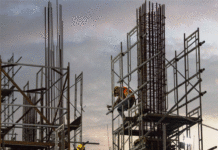Bengaluru, July 04, 2018: India’s maturing residential real estate sector is moving towards product differentiation based on the demographic needs. Fuelled by the changing needs, preferences and purchase motivations of various cohorts, the alternate residential asset class in India is poised to grow exponentially in the coming decade. Developers, investors and private equity funds are exploring these segments aggressively due to resultant higher yield as compared to traditional real estate asset classes.
Meraqi’s latest sector specific research report ‘Emerging Residential Niche Products’ reveals the potential of the growing alternate residential real estate market in India, analyses investment trends in niche categories like Student Housing, Micro units and Senior Housing emerging across the Tier I cities and forecasts the future trends in the segment. The report also gives an in-depth view of the changing dynamics in residential real estate development,emerging formats, innovative typographies and customised facilities across the categories.
Outlining the future potential of niche residential products in India, Gorakh Jhunjhunwala, Managing Director,Meraqi,says “The socio economic and cultural shift in India has impacted the real estate requirements of various demographic groups. An estimated USD 4.3 billion (INR 29,540 Cr)investment isrequired by 2022.”
Key highlights from the report:
Student Housing
- Inadequate stock of on campus hostel beds coupled with lifestyle aspiration of Gen Z (age group 18-25 years)has created the demand for lively, engaging, next generation student housing in major cities/ education hubs of India.The addressable market for student housing in India is expected to be 2.31 million units by 2022.
- With increased interest from PE funds and institutional investors, the student housing and rental housing segment has already witnessed an investment of INR 2000 Cr since 2015; Goldman Sachs, Landmark Capital Advisors, Tiger Global has already invested INR 1200 Crores in the segment.
- By 2022, the student housing segment alone is expected to see an investment of INR 20,000 Cr.
Micro Units
- Driven by increased preference by highly educated migrant professionals, the market for micro units is expected to witness a demand of 4.8 Lakh units by 2022 and almost 53% (2.6L)of the total demand is recorded across the three southern cities.
- An investment of atleastINR 5,800 Crore from organised players is expected in next 5 years to cater to the latent demand in micro- unit segment across the country. Three southern cities (Bengaluru, Chennai and Hyderabad will require an investment of INR 3200 Cr.
- While the segment witnesses a combination of purpose built and aggregation model, the future trend indicates a clear shift towards aggregation model due to the availability of huge unsold residential inventory.
Senior Housing
- The changing mindset of elderly generation coupled and the fact that their children are settling abroad / other cities, the demand for purpose built senior housing will be on the rise in the coming years. Although it is still at a nascent stage in India, however the demand for specifically built projects with nursing care facilities is expected to be 0.6 million units across India in next 5 years. Across the three Southern cities the demand for senior housing is expected to be 62,000 units by 2022.
- The segment has already seen a significant investment from major institutional investors like Columbia Pacific Development, Max India, Tata Capital, Tata Housing.To cater to the growing demand in the category, an investment of INR 6,000Cr will be required across India out of which INR 1,500 will be required across the three southern cities.
Corporate Comm India(CCI Newswire)




















